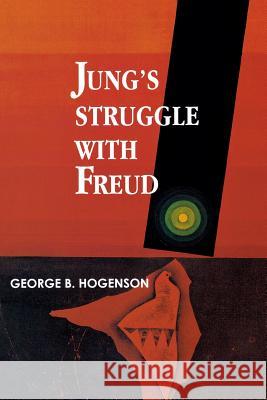Jung's Struggle with Freud: A Metabiological Study » książka
Jung's Struggle with Freud: A Metabiological Study
ISBN-13: 9780933029811 / Angielski / Miękka / 2013 / 192 str.
As Hogenson writes in chapter 1: "Jung's memory of the ocean passage (from Jung's memoirs recording a voyage to America with Freud) focuses our attention on the central problem of this essay: What does it mean to lay claim to personal authority in a world where biography and autobiography have become thematic for an entire cultural discourse? How are we to comprehend authority in psychoanalysis?" So begins his exploration into the relationship between Carl Gustav Jung and Sigmund Freud, a broken friendship that profoundly affected twentieth-century thought.
As Hogenson writes in chapter 1: “Jung’s memory of the ocean passage (from Jung’s memoirs, recording a voyage to America with Freud) focuses our attention on the central problem of this essay: What does it mean to lay claim to personal authority in a world where biography and autobiography have become thematic for an entire cultural discourse? How are we to comprehend authority in psychoanalysis?” So begins this exploration into the relationship between Carl Gustav Jung and Sigmund Freud, a broken friendship, which has profoundly affected 20th century thought.“Hogenson develops his clear argument around the themes of authority, meaning, and time. These themes are discussed in relation to such topics as silence and limit, transformation and permanence, repression and projection, death and law… His way of setting and discussing the struggle reflects a thorough and subtle understanding of the characteristic ways in which Freudians and Jungians see the world and each other.” - Charles E Scott, Contemporary PsychologyAn analysis of Freud's claim to authority in the realm of the psyche, and the challenge from Jung that led to their break-up. "Bring(s) to light important elements of how Jung's philosophy emerged". - Transpersonal Review











